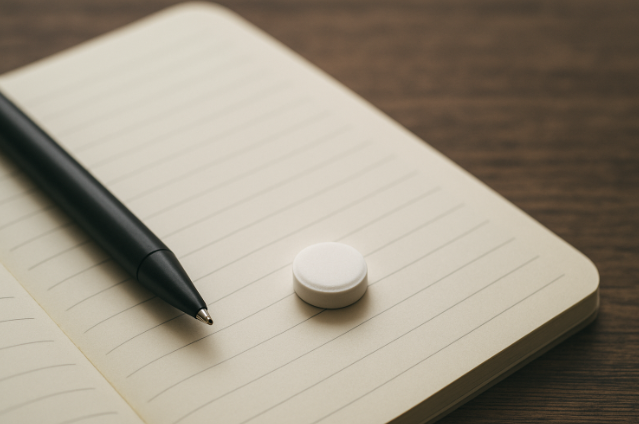
The first time I swallowed a lithium tablet, I stared at it like it was both salvation and surrender. It was small, chalky, harmless-looking, yet it carried the weight of a promise: stability. Or at least, silence. My psychiatrist called it a “mood stabiliser.” I knew it as something closer to a truce. Not healing, not freedom, but an uneasy ceasefire between me and my suicidal brain.
I was first put on lithium in 2023, after being diagnosed with bipolar disorder. I didn’t know how to resist then. I went back to the hostel, rewatched the film Touched with Fire, and remembered what lithium can do to artists: dull the edges, flatten the fire. Within weeks, I felt it happening. The words stopped coming. My writing lost its soul. I hated everything I wrote, even diary entries. I went back to my psychiatrist early, desperate to stop the medication. He refused. In despair, I quit the pills on my own. That withdrawal spiraled into my most deadly suicide attempt. Looking back, I was hypomanic when it happened.
That attempt landed me in NIMHANS, India’s premier psychiatric institute, in October 2024. There, lithium came back into the conversation - this time as a shield against suicide. It was presented as a trade-off: lithium or ECT. I was terrified of ECT, terrified of memory loss. My deepest fear has always been losing my mind - Alzheimer’s, dementia, anything that erases the self. I asked how long this treatment would last. “Five years of lithium, mood stabilizers for life,” the doctor said. That was the bargain: stability in exchange for pieces of myself.
Since then, my dose has been tweaked - 300 mg to 600 mg to 450 mg - but the core remains: I am still on lithium. And I still cannot write the way I once could. My words feel distant, hollow. Even now, as I draft this, I hate it with all my heart. It feels like I traded my voice for survival.
. . .
Lithium is not just a pill; it’s a symbol of psychiatry’s power. Discovered by accident in the 1940s, it became psychiatry’s first “true” mood stabiliser - a chemical restraint that could quiet mania and blunt suicidality. In India, it was folded into a system that still carries the legacy of asylums and colonial psychiatry, where control often outweighs care. Lithium is cheap, effective, and easy to monitor - ideal for public mental health systems built to manage patients rather than empower them.
Psychiatry likes to frame medication as neutral science, but it is steeped in carceral logic. Patients who refuse are often labelled “non-compliant.” Risk assessments loom larger than lived experience. During my NIMHANS admission, I was terrified of ECT and refused it - fully understanding the consequences, communicating my decision clearly. The Mental Healthcare Act says a person has capacity if they can understand relevant information, appreciate the consequences, and communicate a choice. I met those criteria. Yet doctors still called me “incapacitated” so they could override my refusal. I was subjected to ten sessions of ECT anyway.
The same coercion shadows lithium. At every review, my psychiatrist checks whether I am “compliant,” not how the drug affects my creativity, memory, or identity. Missing doses are treated as danger, not autonomy. Medication, in this system, is not just care; it’s control. It keeps patients functional, safe, and quiet enough to not be a burden - even if it flattens the parts of us that make life worth living.
. . .
And yet, I keep swallowing it. Not because I want to, but because I am not really allowed to stop. I know what lithium does - it pulls me back from the brink, dulls the chaos of mania, lowers the risk of another suicide attempt. But I don’t want that kind of safety. I want to know what it would mean to live without medication, to ride the highs and write through the wildness, even if it burns me. The people around me - doctors, family, lovers, well-meaning friends - will not let me find out. Survival is imposed on me as the only acceptable choice.
I don’t want to be less manic; I want the fire that once lived in me. I want to live, but I want to live as myself - not as a muted, chemically contained version of me. Lithium keeps me alive, but on psychiatry’s terms, not mine.
This is the paradox. Anti-psychiatry movements sometimes romanticize madness and dismiss medication outright. Mainstream psychiatry romanticizes stability and calls it recovery. I am trapped somewhere in between - alive because of lithium, but diminished by it, forced to trade away pieces of myself to stay here.
. . .
Every night, I swallow a small chalky tablet. It keeps me from dying, but it also keeps me from writing the way I used to. It’s a choice I never fully got to make, a compromise shaped by fear and power. I don’t know if I’ll ever get my words back, or if one day I’ll decide the trade-off is no longer worth it.
What I want - what so many of us want - is simple: survival without silence. Care without coercion. A psychiatry that doesn’t demand we give up the deepest parts of ourselves just to stay alive. Until then, I live in this uneasy truce with lithium: alive, but never entirely free.
